#lol hear me out
Explore tagged Tumblr posts
Text

Untitled (apple core emoji)
#me#lol hear me out#an apple core emoji would be so versatile#like I just did abs so that’s applicable#also if you just got ate out?#give the people what they want
662 notes
·
View notes
Text
(The gang when they find out their kids got hurt-)
1 note
·
View note
Text


typical tavern scene
#dimension 20#fantasy high#fhjy#fabian seacaster#riz gukgak#adaine abernant#kristen applebees#figueroth faeth#gorgug thistlespring#got my version of this in lol. I feel like this is mandatory if u draw fh art#trying to remember whats on the menu at a typical swensen's. its been years since I last was at one#tho I am so absolutely unfamiliar with like elmville level of town scenery. just immediately drew from my own experience lmao#I used to think malls are the same everywhere.... but then I hear from my US friends and. wow they sure are not#mm. good day to reminisce a little bit. but I am now sleepy#not a lot to say abt this I think most of this is pretty straightforward. I did use this to test out some overlays in SAI2#that I never really touched. the talisman on fig's guitar case takes from the house protection talisman you'd put on the front door#and also I think kristen slipping while fully sat down is very funny and special. she means so much to me#okay. alright. I should really go to sleep. and tomorrow I should take my dang walk... see the sun#have a good night lads! enjoy ice cream
5K notes
·
View notes
Text





[insert poetic title here]
fun fact: this did not start out as isat fanart
(rambling in tags)
#I was actually doing some personal writing and when I read it over a few days later I could only hear it in loops voice#speaking of which#i totally recommend watching ShortOneGaming's playthrough of the game#their voices for the characters match so well in my mind i can't separate them XD#also i have no clue why but this took FOREVER#I had the thumbnailing and paneling done so quickly but my motivation to finish it just left me midway through the third page T-T#Even though this is one of the shorter comics I've made (AND NO COLOUR) it somehow took my like twice as long -3-#loop is so fun to draw!#well actually fun to colour would be more accurate lol#also did you know that a keyknife was an actual thing??#I wanted to check if their was an a visual asset of it in the game only to find out they're just everyday objects you can own???#maybe im just seriously out of the loop lol#and i know the buttons are wrong but i was already mostly finished inking by the time i realized so lets just say its a stylistic choice#isat fanart#isat spoilers#sasasaap spoilers#two hats spoilers#cw body horror#??? i think#comic#artists on tumblr#fanart#digital illustration#digital art#isat#isat siffrin#isat loop#in stars and time spoilers#my art#my comic
3K notes
·
View notes
Text
I’m ovulating







#girl things#im going insane#i need him#need that#daryl dixon#the walking dead#daryl dixon x reader#ramblings#why not#i’m ovulating#i need that old man#norman reedus#hear me out#lol anyways
546 notes
·
View notes
Text

fck it *edgyfies my poseidon*
(25.01.2025)
#poseidon#modern poseidon#at least one of the takes for him lol#the shell contains a itty bitty nerites i feel. trust me#also his hair is shorter! can you notice anything about it?#epic the musical#epic the musical fanart#epic poseidon#greek mythology#digital#digital art#hansu!#listen... what if...#percy jackson#percy jackson poseidon#???#hear me out...
439 notes
·
View notes
Text

clair de lune
#shumika#ensemble stars#shu itsuki#mika kagehira#enstars valkyrie#i drew this......... with such a heavy heart tbh... enstars now gives me such mixed feelings (rightfully so) but there's attachment still#to the songs and charas mostly (out of canon bc clearly HE doesn't care) and the lovely people i met in the fandom#so i won't stop drawing them completely but do continue boycotting and pls stop giving them money (pirating exists)#anyway; sorry for french posting shu is tragically french lol#writing is from the first two verses of paul verlaine's clair de lune poem which inspired debussy's version (give it a read!)#i'll give it to them i did crumble into pieces hearing it in the full 6 min version.
416 notes
·
View notes
Text
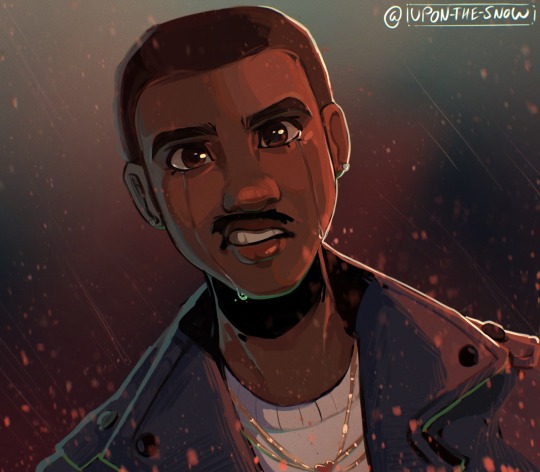
✨ thoughts and prayers ✨
#fifteenth doctor#doctor who#Not sure about this one but who knows lol#If there are errors you don't see them 😭#doctor who spoilers#the doctor#my art#doctor who boom#mine#procreate#digital art#doctor who fanart#doctor who series 14#15th doctor#ncuti gatwa#fanart#anyway cool episode! the concept is literally so funny like.#"hear me out. the doctor steps on a landmine and can't move all epsiode”#and its great! return of the random quarry somewhere in wales i missed her
1K notes
·
View notes
Text
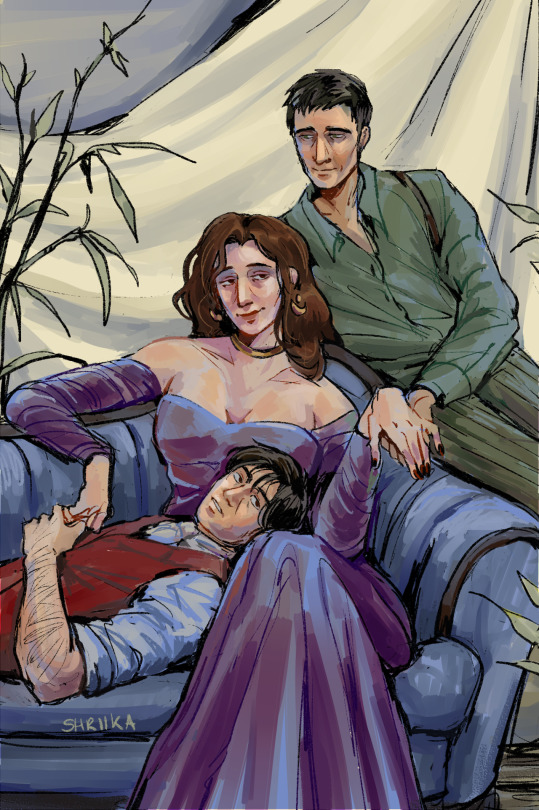
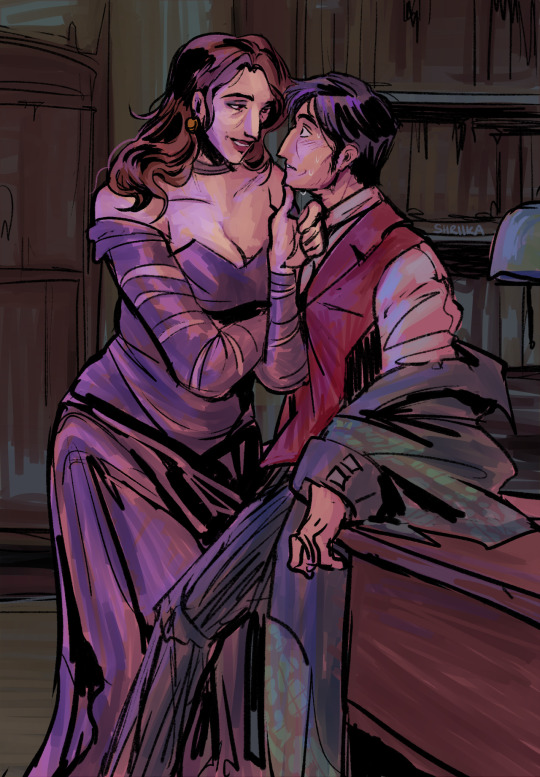
nina, victor, and their beloved pet scientist voted "most hated polycule" by the powers that be
#MY LONGEST EVER HEAR ME OUT#if nina were alive (in the flesh) it would be OVER for you bachelor 🫵#need more daniil disaster bi rep#normally i think he gets no paper no play but like... the kains are besotted with him so just this once he wins#they are going to eat him alive :)#pathologic#мор утопия#daniil dankovsky#nina kaina#victor kain#im sorry victor u will get ur time with daniil i prommy but nina called dibs </3#shriikadraws#edit bc i forgot own fucking art tag lol
1K notes
·
View notes
Text

In b4 Jiji comes in and blows up in popularity, I'm a Jiji/Okarun/Momo OT3 stan 🙏
#oh my godddd i want to get better at coloring#dandadan#momo ayase#jiji enjoji#dandadan jiji#jin enjoji#okarun#i don't want to tag ken takakura bc i just know there are folks out there looking for the actor lol#momokarun#jijimomo#jijiokarun#my art#dan da dan#anyway hear me out on them. all three of them are so precious together.#jiji and okarun adore and respect each other. momo and okarun are obvious. momo and jiji have a cute as hell rapport#i DO hope to make more art of these three because i love them to death. okarun's determination to help jiji deal with the evil eye#momo's ex(?)-crush on jiji. jiji and okarun playing soccer together. jiji loves how smart okarun is. i believe polyamory WOULD save them#jijimomokarun
514 notes
·
View notes
Text



*compresses two blorbos together and calls it a meal* 💥
#AM#ihnmaims#allied mastercomputer#cognito ergo sum#mr puzzles#smg4#crackship#lol#They remind me of#billford#HEAR ME OUT#The crack is shipping#We shall call this AMP#AMPshipping#ampshipping#AMP#digital art#artists on tumblr
464 notes
·
View notes
Text
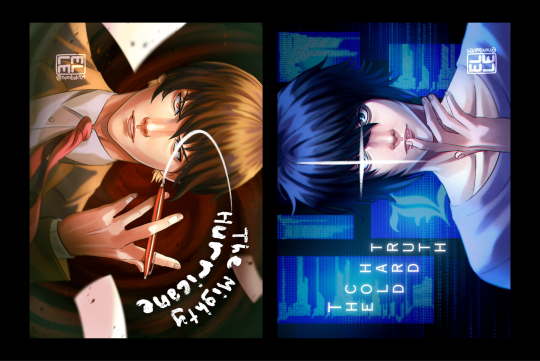
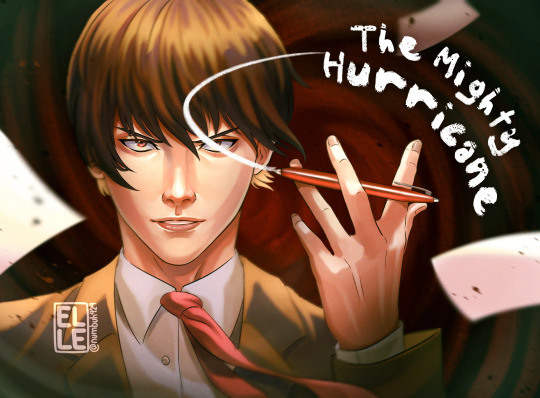
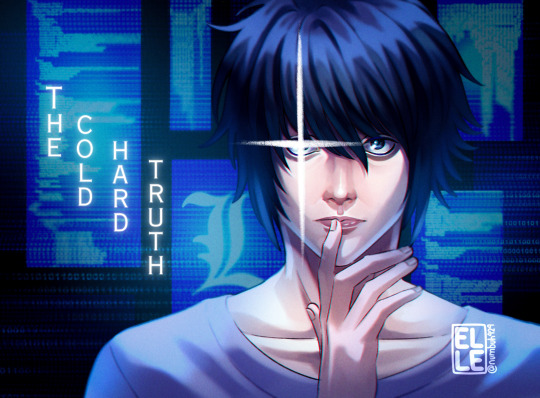
The unstoppable, mighty hurricane and the immovable, cold, hard truth.
#death note#death note art#death note the musical#Light Yagami#L Lawliet#death note fanart#death note musical#lawlight#dn musical#digital art#elle draws#more musical art! I love u forever death note musical#been trying out new things with my rendering again lately sorry if I'm all over the place#kinda wanna talk abt the decisions that went into the movement of the text because#originally it was just supposed to be simple serif type in the empty space beside them but listening to their solos on repeat while working#really influenced it and I couldn't shake how much I wanted them to match the movement lol#esp with light like I just wanted it to be small text but hearing jeremy j belt 'HURICAAAAANE' made me go fuck it it's the mighty hurricane#*increases font size significantly*
1K notes
·
View notes
Text
Disliking Tallchuck is a MAJOR skill issue.
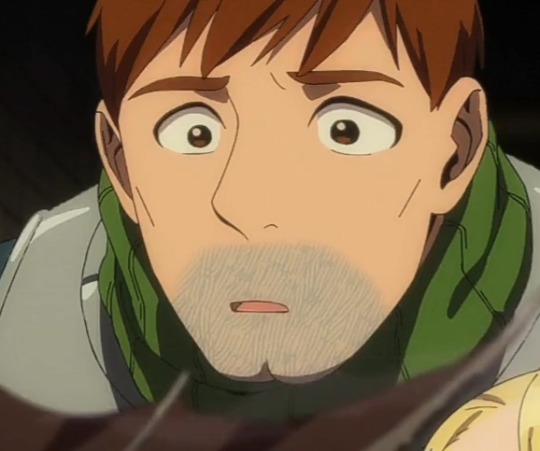
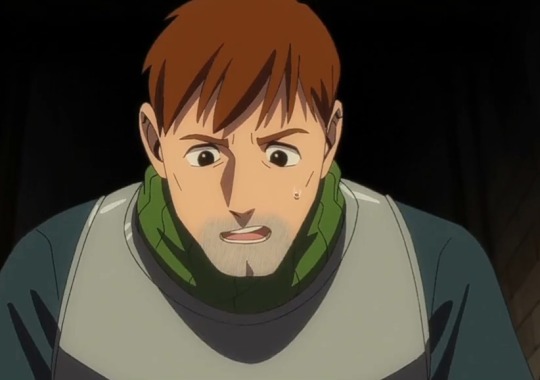
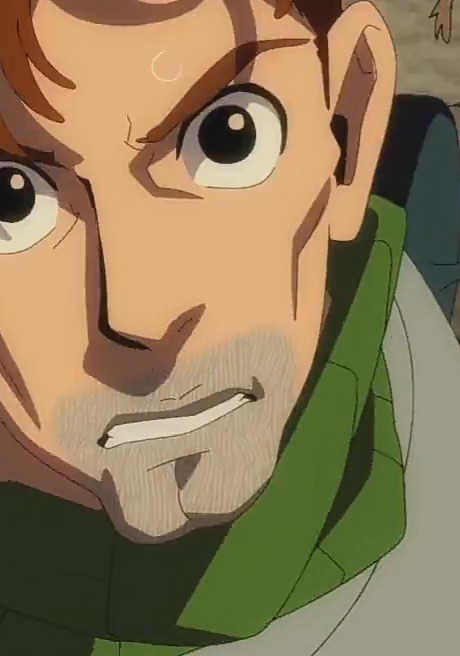
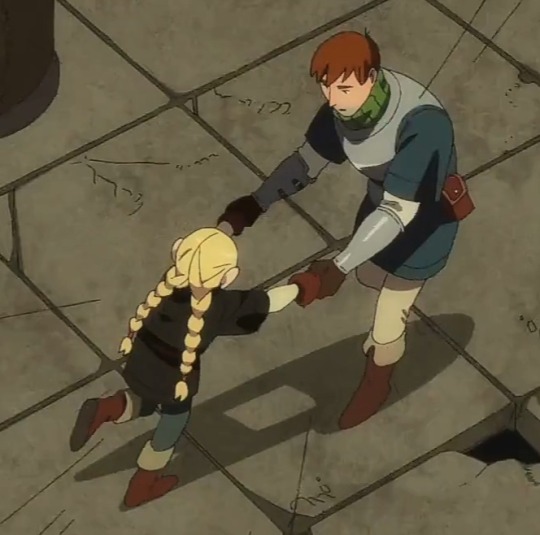
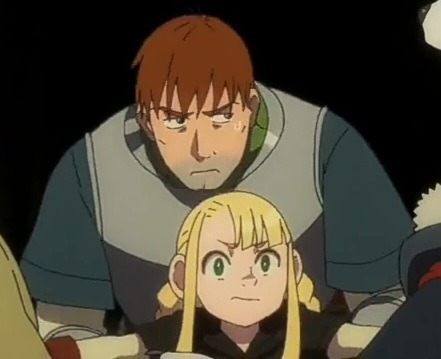
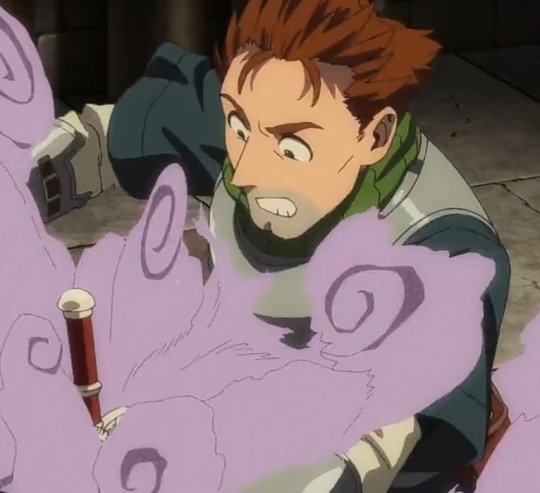
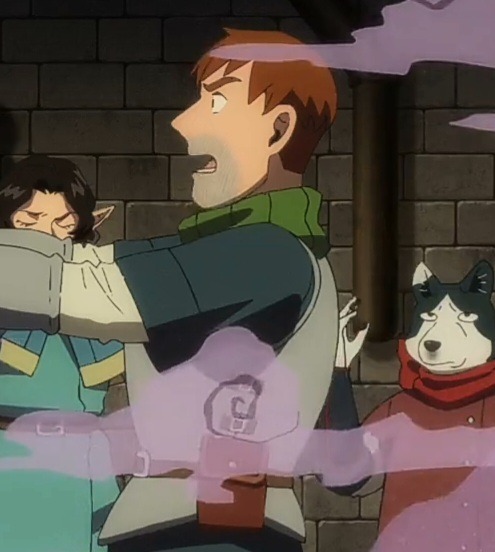
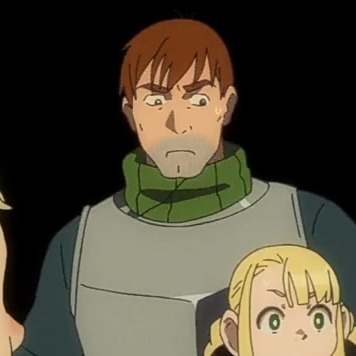
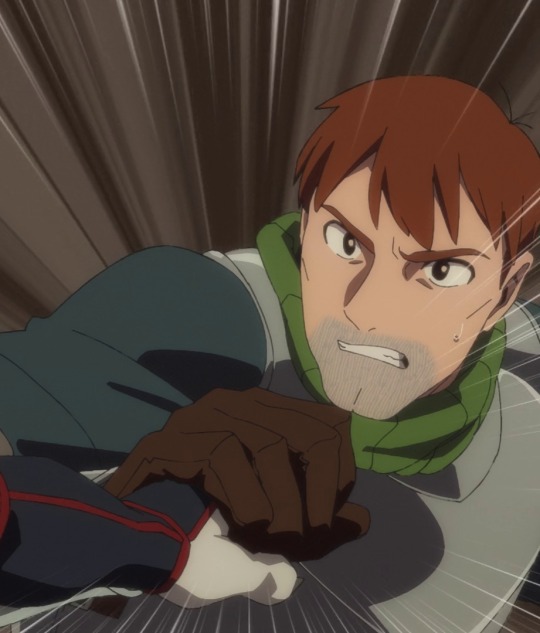
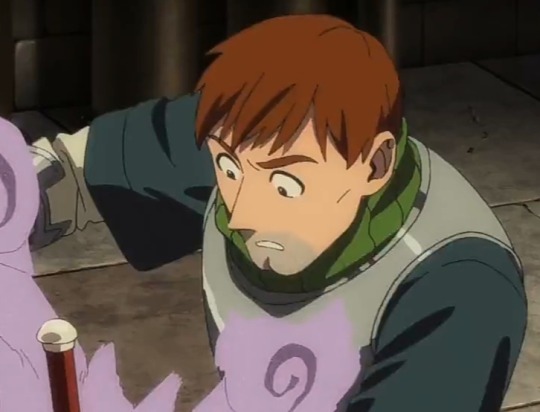
#he isnt even ugly#you guys just don't like he doesnt look comically young for a 50 year old#that or you just dont like adult men...? maybe? idk#i love him so much#he is handsome you guys dont have eyes on your faces#also#splitted chin was a jumspcare sure but it doesnt make it worse??? why my people hating on it so much???#he is the handsomest tallman from this show and i wont be hearing anyone out. he could be the handsomest character if it werent for holm <3#lol#anyways#don't hate my beautifull tallchuck#he deserves love as an adult and as a (tallman) adult#dungeon meshi#chilchuck#dunmeshi#chilchuck tims#delicious in dungeon#tallchuck#my man makes me feel things#i loved him before but this?? this is a treat for me <3#btw#tallchuck is just mickbell version of chilchuck#my shit
770 notes
·
View notes
Text
Actual Ultimate Classpecting Guide
For real this time.
Buckle up, this is a really long one. For everything that's posited, I can provide textual evidence; that being said, I'm not going to be including the textual evidence within the essay itself, because it's already long enough as-is. As such, please feel free to ask for clarification or sources on any assertion, and I'll do my best to provide.
Before we begin, there's some things to discuss about how we're going to be approaching classpect in the following essay. In numbered list form for our short attention spans:
1. There is a concept Hussie talks about multiple times in his book commentary, "personality alchemy" - the idea that there are these "platonic ideals" of certain characters, which can be mixed and matched with others, in order to create new characters. The examples he gives are of how Eridan was a proto-Caliborn, how Kanaya has shades of Jade, how Nepeta was a proto-Calliope, and how Sollux and Eridan have shades of Dave in them. Classpecting is fundamentally a form of this personality alchemy:
2. Class describes the character's arc and emotional hurdles, while Aspect describes the character's base personality traits by which this arc is experienced.
3. For example, all three Seers struggle with hubris: Rose's need to be the smartest person in the room led to her being manipulated by Doc Scratch, Terezi's obsession with meting justice led to her engineering a situation where the only option was to kill Vriska, and Kankri's desire to be seen as a spiritual leader amongst his friends led to him furthering their divisions and harming them.
Then, when their pride is shattered, they cope by inflicting willful self-blindness: Rose turns to drinking herself stupid (the opposite of Light's sway over knowledge), Terezi gets down with the clown (the opposite of meting out Mind's justice, as it's a Gamzee W), Kankri goes celibate (Blood L) despite his clear romantic feelings for certain teammates.
4. As for Aspect: note how all three Life players share the personality traits of optimism, stubbornness, and obstinacy. All three Breath players share an immaturity and naïvety, and are quite frankly irresistible to people for some reason. All three Light players share a need for the spotlight and a tendency toward long-windedness and persnicketiness. So on and so forth.
What's interesting is, if you start analyzing characters that share Classes and Aspects, these specific types of similarity crop up over and over - all our Knights struggle with insecurities and facades, both our Bards have a crisis of faith. All three Breath players have an aspect of immaturity and childishness to their characters, and all three Light players are deeply concerned with appearing intelligent and feeling important.
5. As a result, this guide is NOT intended for classpecting real life people, because we are complicated, we contain multitudes, and we don't have arcs. This is primarily an analysis of what Class and Aspect mean in Homestuck based on textual evidence, because I genuinely believe that you can basically figure it out if you read carefully.
6. Duality, and the idea of "equal and opposite," are major themes within Homestuck - Prospit and Derse, Skaia (described as a crucible of birth and creativity) and the Furthest Ring (the literal afterlife). Which classes are involved in an Active/Passive split, and opposing Aspects, are the same way. This is the primary method I used to determine the Active/Passive pairings and opposing Aspects. After all, as Callie describes, both Thieves and Rogues are classes "who steal" - so, too, do I try to unify Classes by a common theme, even if they diverge wildly in how that theme is expressed (as Thieves and Rogues do). In the same way as the opposite of "up" is not "apple," but "down", because "up" and "down" are both fundamentally concerned with relative vertical position, so too can be defined concepts like Breath and Blood, Hope and Rage, Light and Void - as well as the reasoning behind Class pairings like Heir and Page, Maid and Knight, and Seer and Mage.
7. Descriptions for both Class and Aspect are left deliberately vague and up to interpretation within the comic itself, and this is by design: the actual manifestations of an Aspect can vary wildly given the Class, and even individual person, that it's tied to. Calliope even makes note of the fact that, under the right circumstances, someone can manifest effects that appear to be the opposite of their aspect. She's also careful to couch her language in "may" and "can" - because these concepts are intentionally somewhat nebulous and malleable. As such, while this guide certainly lays down what can be gleaned and inferred from the text, do note that Homestuck runs on a soft magic system, and as such, nothing stated is firm, 100%, must-always-be-this-way - just an overview of what we've seen.
8. There is often great overlap between Aspects, Classes, and Classpects - which Calliope herself notes. Heart and Blood are one of the most salient, as they both have a fixation on relationships, and Calliope mentions that under the right circumstances, a Classpect may even be able to manifest what appears to be the opposite of their Aspect. Again, Homestuck operates on a soft magic system, so this is a feature, not a bug.
ASPECT
There's a little less to say about Aspect, not because it's less complicated, but because "base personality traits" are much more nebulous compared to Class's sway over character arc. Still, Aspect represents the fundamental way a character is, and thus, color every interaction that character has. There's a reason Ultimate Selfhood is sought through Aspect, not Class - Aspect is the core of the character's being, what makes that person that person.
That all being said, Class has major sway over how an Aspect manifests, and certain classes can even invert the Aspect and even the character's role in the party. As such, these descriptions must be parsed carefully in relation to Class. Moreover, due to the soft magic system, there is at times overlap between unrelated Aspects, which can also be exacerbated by Class - Heart and Blood being the most obvious in this regard. Still, overall, you'll find the Aspects to be fairly distinct from one another.
Please also note that every Aspect can deal with its literal counterpart by default - Light players can wield lasers, Breath players can wield the breeze, et cetera. Because this kind of goes without saying, and because the non-literal stuff is more interesting to discuss, I'm not really going to go into too much detail about the literal qualities.
Finally, something interesting to note is that nearly every Aspect follows its own Hero's Journey cycle - full actualization for each one usually means reaching around to its opposite Aspect, and taking lessons from them - for example, Breath players need to learn maturity and responsibility, while Blood players need to learn relaxation and whimsy. Thus, an Aspect at its worst manifests in two ways - either a toxic overabundance of the Aspect's worst traits, or such a dearth of the aspect that it begins to resemble its opposite. Only by reaching into the opposite, however, can the player be tempered and reach full maturity - can they become more of who they are.
SPACE / TIME
Space and Time are both concerned with physical reality, goals, and the way one approaches them.
Space is associated with "the big picture" - with recycling, reproduction, and the interconnectivity of all things. The aspect also presides over the enjoyment of the journey over the destination - Space players serve as reminders that the present moment is as important as the end goal. Space is often a more passive Aspect, being the stage upon which the story is set. They're the hosts of the party, and the one who marks the ending.
Its players reflect these tendencies, often being feminine, with penchants for life-giving acts such as gardening. Their personalities tend towards frivolity and silliness, finding it difficult to stay on-topic or bring full gravitas to serious situations. Perhaps a better word would be "distractable;" when the aspect is so concerned with all things in connection with each other, it's easy to lose track of details, and it's easy to enjoy things simply as they come. Space players tend to be kind, patient, and forgiving, which is a strength as much as it is a flaw; it's easy for malicious actors to take advantage of this compassion, or for the Space player to find themselves in a poor situation by being overly permissive. They can easily be painted over by stronger personalities, and tend to struggle with romantic relationships, as they attract many with their kind and giving natures, and few are naturally so considerate of the Space player in turn.
"Passive" is a good word to use; at a toxic overabundance of their Aspect, Space players are trampled underfoot. They become enablers, servants to dark forces, or so lost in their own worlds that they neglect the one they live in. With their Aspect "inverted," a Space player becomes a demon of poor prioritization. Distracting not just themselves from their true purpose, but others, too, the Space player will wreak havoc by overemphasizing unimportant topics and ignoring important tasks. This superficially resembles Time, in that the Space player will become fanatically dedicated to their task, but note that the poor prioritization is still Space-esque at its core.
Still, within this nadir is a valuable lesson: the strength of self-assertion, and the determination to see a goal through. These will allow the Space player to weed their garden, separating good from bad, allowing it to flourish like never before.
Time, in contrast, is associated with "the little things" - with details, minutiae, and processes. Time presides over the struggle toward something greater, the endurance of hardship with an eye on the prize - the destination over the journey. Time players are the ones keeping track of the tasklist, marking off each item as it reaches completion; they are the tireless workers keeping the whole engine running.
Time players, thus, are ones whose lives are marked by struggle. They are highly goal-oriented; in contrast to how Space players can easily move from goal to goal, task to task, Time players feel bound to see things through to the end, finding satisfaction only when they've achieved their desired result - and only until they come across the next goal in their journey. A Time player isn't happy without a goal to work towards, a craft to polish, a prize to win - but this driven nature can easily be its own downfall, as it leaves little room for the player to admit to their own shortcomings, or ask for help from others. Moreover, their focus on minutiae can leave them blinded to the bigger picture, and it's easy for a time player to fall to despair, able to do nothing more but spin their wheels. They're prone to directionless anguish, frustration, and resentment towards the seeming futility of their actions, becoming destructive and defiant even when it doesn't serve them to do so.
At a toxic overabundance of their Aspect, Time players become explosively destructive. The ultimate "goal" of all things is death, with which Time is associated, and accordingly, Time players have a penchant for aligning themselves with futility and entropy, struggling so hard that their thrashing leaves a trail of annihilation in their wake. With their Aspect "inverted," Time players detach entirely - they can become so fed up with struggle that they simply opt to lay their weapons down and let the end take them. It's very easy for them to come to the conclusions that either everything matters, or nothing matters. This superficially resembles Space and its big picture thinking, but note that its framework of struggle, and whether or not a goal needs to be pursued, makes it a Time concern.
But the inherent meaninglessness of existence is, in itself, an important realization to make - that whether or not anything "matters" in the grand scheme, things can still be worth doing, worth caring about, and worth investing in. This realization allows the Time player to attack their goals with renewed vigor and greater clarity, which in turn means that the party becomes an efficient, well-oiled machine.
BREATH / BLOOD
Breath and Blood are both concerned with directionality, interpersonal relationships, and autonomy.
Breath is the Aspect governing freedom, liberty, and independence; it is a force that breaks shackles, clears out social norms, and refutes "the rules," whatever those rules may be. Breath players can't be tied down, whether by physical bonds, societal rules, or even the ineffable forces of the narrative itself. They are leaders of example, pioneers, and trailblazers, opening new paths for their teammates to follow.
Breath players are goofy and gullible, often with hearts full of childlike whimsy, naivety, and even immaturity. They are friendly and well-meaning, fond of simpler things, and easily swayed by others. They approach the world with a sincere and innocent good-naturedness, like a baby animal before it learns to be fearful of danger. Something about this sincerity seems to make Breath players irresistible to others, and they often find themselves the subject of romantic attraction. However, in this childishness is also the great pitfall of many Breath players - their natures are naturally conflict-averse, and egotistical the way a child can be, failing to see beyond themselves. They can be incredibly callous when not considering the consequences of their actions, or the viewpoints of others.
At their worst, Breath players are irresponsible and callous. They'll shirk the consequences of their actions, blaming anybody but themselves, or simply choose not to care who they hurt in order to get what they want. They may even choose to stop making choices for themselves, leading to the "inversion" of their Aspect - a voluntary loss of freedom and independence, derived from an Breath-like aversion to responsibility, which superficially resembles the bondage of Blood.
But if they are able to overcome these tendencies, a Breath player will learn what true responsibility looks like - responsibility for themselves, their choices, and the effect they have on others. Armed with this, a Breath player's ability to break bonds can be focused into a clear force for good, clearing away all obstacles and harmful societal standards, leading the charge into something new and beautiful.
Blood, in sharp contrast, is the aspect that governs bondage, contracts, and interdependence. It is a force that binds. Under Blood's sway are not only romantic entanglements, but familial, friendly, and societal ones as well. This aspect sees overlap with Heart, but the division is this: Heart concerns itself with feelings, and Blood concerns itself with compatibility. Blood players are diplomats, forces that remind us all that we are more similar than we are different, and that that similarity should bring us together when we are on the verge of pulling apart.
Blood players, reflective of their Aspect's association with bonds, tend to be neurotic and obsessive. They have a tendency to over-examine and overthink, constantly fretting over the infinite and infinitesimal variables that influence the shape of society and interpersonal relationships. However, this judgmental nature stems from a deep well of idealism and empathy; Blood players can't help but care about others and wish for the best for them. In a way, this makes them one of the most mature members of the team, being concerned with its overall well-being. Unfortunately, their prowess does not extend inwards, and their assessment of themselves is usually direly incorrect - all the worse because Blood players always feel responsible for those around them. Blood, being the Aspect concerned with interdependence, is the weakest one when all alone.
Thus, it's easy for the Blood player to wind up controlling - desperate to make sure everyone is moving according to their vision, they'll become iron-fisted dictators, with a "my way or the highway" approach to social interactions. It's easy for them to wind up pariahs of their own making, becoming so critical of others, or so adamant about enforcing their own will, that they inadvertantly sever their ties - something that superficially resembles Breath's independence, but is truly a result of Blood's neuroticism.
But with that space and separation can come great clarity. Blood players must learn to relax their grip, and allow people room to breathe - including themselves. Once able to grasp that sometimes bonds must be forged with a soft touch, Blood players' natural empathy shines through, allowing them to build something so much kinder and greater than the sum of its parts.
LIGHT / VOID
Light and Void are both concerned with knowledge, ontology, and "narrative relevance".
Light (as well as its counterpart) are perhaps best understood through the lens of "narrative" - this idea that, of all things that do and don't exist, and all events that do and don't happen, only the ones put to page are "relevant". Thus, Light is associated with knowledge and luck - that is to say, it's associated with the knowable, the objective, and the concrete, and the ability to determine "important" events. Light players have read the book they're participating in, and able to serve as luminary guides from one plot point to another, lighting the lampposts for others to follow.
Light players, naturally, are erudite and educated, possessing keen intellects and cunning minds. They are fond of knowledge itself, of markers of status and prestige - whether that's wealth, the adulation of the masses, or a massive library. They harbor a desire to be important, to be seen, to be acknowledged, and are happiest when they are looked up to. Conversely, they deal poorly with being looked down upon. Their confidence transmutes easily into hubris, and they struggle with having that pride challenged. As such, they tend to be volatile and unpredictable, quick to retaliate against those who threaten their egos, or obsequious to those whose acknowledgement they desire.
Their desire for the limelight can quickly spell disaster - they can become incredibly cruel, harsh, and egotistical in their pursuit of narrative significance. They forget, in their obsession, that they, too, are fallible and flawed, and the inevitable reminder can come very harshly. Light players struggle with moderation, and as such, when they feel shame, they'll often take drastic measures to cope with it - deliberately darkening their own influence or intellects, removing themselves from the "story" entirely - something which superficially resembles Void's penchant for the background, but which is firmly rooted in Light's obsessive need for drama.
But in experimenting with narrative insignificance, Light players can reach an epiphany - in their absence, others may shine, and that can be a wonderful thing. Light players, then, can learn to shine not just for their own sakes, but for the sake of others, allowing them to weave a story even more brilliant than any that can be weaved alone.
Void, in contrast, is the blank spaces between the words. That which is secret, subjective, unknowable - these are Void's domain. It's associated with taboos and hidden things, sexuality and pleasure. It's also associated with the empty canvas - the blank space before creation, and the oblivion to which creation is eventually destined for. Thus, it stands for infinite possibility, though the collapse of those possibilities into a reality removes that reality from Void's domain.
Thus are Void players ever cosigned to the background, though this generally suits them fine. Void players are very self-possessed. Where Light players tend to exaggerate and complicate, Void players are honest and simple, preferring straightforward solutions. They don't tend to think very hard, instead letting intuition and emotion guide them to where they want to be - which makes them one of the more stable personalities on a team. However, this simplistic, feelings-driven approach often leads to pleasure-seeking behavior, poor impulse control, and overindulgence in vice, and from there, to irrelevance, with which Void is so closely interlinked.
Void players are especially prone to vice, and at their worst, will become so drunk on pleasurable activities that they pursue them to the active detriment of the party's goals or the Void player's self-improvement - making them the ultimate irrelevant character. They can also very easily drag others into their mélange, with a forcefulness that resembles Light's illuminating guidance, but which is ultimately rooted in Void's pursuit of personal pleasure.
But there's a lesson to be learned in Light's domain: how to bring themselves into relevance and greatness. A Void player, once they learn to pursue not just personal pleasure, but a greater satisfaction for the collective whole, can drag the Void behind them, kicking and screaming, to where it'll be of use.
MIND / HEART
Mind and Heart are concerned with what it means to be a sentient being, with identity, and with why we do what we do.
Mind is the Aspect associated with logic, rationality, karma, ethics, and justice. To a Mind player, they "are" because they "think". They are keenly aware of the consequences of every action, and well-versed in cognition and behavior, such to the point of manipulating others with ease. Deeply concerned with the "effect" of cause-and-effect, Mind players are always cognizant of debts and credits, where justice is owed and where it has been over-meted, and their subtle machinations culminate, like well-placed dominoes, in grand and explosive finales.
Mind players are schemers - it's in their nature. They have a tendency to view the world as a puzzle or game, with themselves and the people around them as pieces on a board, and set as their standard rules the laws of ethics and karma - owed debts and overhanging credit - guilty and innocent. Mind players are wickedly cunning, and have an high success rate with every scheme they commit themselves to, but the grand downfall of all these tendencies is that they tend to lack in a sense of identity, and have a poor grasp on their own emotions or desires. While they may know how to provoke a desired reaction, they don't know how to change someone's mind. They often find themselves grappling very painfully with their own selfhood, with feelings of emptiness, inadequacy, or uncertainty.
Thus, a Mind player at the worst zenith of their Aspect is heartless and cruel. Leaving no space for empathy or even personal feelings in their plans, the Mind player will plot for an ending as heartless as they are. But a Mind player is never truly without emotion, and ignoring their own feelings causes them to manifest in terrible ways - Mind players have a tendency to seek toxic, codependent relationships, hoping to find external validation, subjecting themselves to the wishes of others, which can appear like Heart's fixation on feelings and desire.
But in recognizing their own need for emotional validation, and the importance of their own feelings, a Mind player can realize that there's an entire dimension to the game they've been playing that they've been ignorant of. When a Mind player learns to temper their schemes with empathy, compassion, and kindness, how much more success they'll see - and how much happier that grand finale will be!
Heart, then, is associated with feelings, motivations, intuition, the soul, and the self. To a Heart player, they "are" because they "feel" like they are - and they're keenly aware of the multitudes that are contained within themselves. Deeply concerned with the "cause" of cause-and-effect, they're drawn to desires, those of themselves and of others, especially where strong feelings are concerned. Heart players are gifted with an intuitive understanding of those around them, both their good and bad qualities, and are tasked with the grand task of bringing out the best.
It stands to reason, then, that Heart players have a firm grasp on who they are and what they want. For the same reasons, it's difficult for a Heart player to truly hate or condemn another person, because they are so adept at understanding them. However, this understanding comes with a price - because the Heart player is so aware of themselves, they can't escape their own worst traits - nobody self-loathes as accurately as a Heart player can. Nor can they ever truly be untruthful with another, making them poor manipulators. Capable of presenting a different facet of themselves as the situation calls for it, certainly, but just as it's impossible to lie to a Heart player, who always knows how someone really feels, it's impossible for a Heart player to lie to themselves.
With this sincerity comes vulnerability. Heart players wear theirs on their sleeves, and at their worst, this can make them demanding, needy, and sensitive - so eager to connect with others emotionally that they'll cramp themselves to fit others' desires. But they can't ever keep this up for long; Heart players have a tendency to withdraw from others after being hurt too often, finding it easier to be alone and silent about their feelings than to deal with the pain of rejection. They may even work to manipulate others, preying on their emotions and desires to force them to act in their worst interests. This superficially resembles Mind's cold logic, but unlike Mind's cool rationality, Heart's aloofness is a mask, an attempt to avoid pain by pulling away.
But this isn't purely a negative, because a Heart player can learn a healthier form of detachment, and separate out healthy and helpful desires from harmful and detrimental ones. Given this clarity, the Heart player becomes the team's emotional core, able to raise up each teammate's best qualities, while helping them deal with their worst, enabling everyone to be the best possible version of themselves - which the Heart player knew them to be all along.
LIFE / DOOM
Life and Doom are concerned with outlook, with journeys, and with trials and tribulations.
Life is an aspect concerned with healing, growing, and improving. It is associated with beginnings, optimism, and positive emotions. The very essence of Life lies in its healing abilities, in this idea of overcoming the odds and triumphing over hardship and difficulty. Life is action, movement, and motion, and its players can scarcely hold still. Life will find a way - and Life players harbor the same immutable belief; they are the most stubborn weeds in the garden, the cockroach that survives the apocalypse, and the beating heart that refuses to stop.
Life players tend to be optimistic and confident. They are self-assured individuals, with a stubborn belief that good things are on their way, and any hardship they face is not only temporary, but something that can be overcome. They can find the silver lining in any cloud, and enjoy themselves under any circumstance. They love to nurture, to care for others, though this love has a tendency to be one-sided. Indeed, Life's stubborn nature is its players' greatest pitfall; their persistence easily becomes obstinacy, and their confidence can become condescension. Their self-assured nature easily becomes egotism, and they can have great difficulty grappling with those who don't share their views - even coming to oppose those who bring emotional pain and suffering that can't be easily fixed.
It's very easy for a Life player to decide another person isn't worth their attention, and opt to leave them behind - after all, Life has to move forward, no matter what it tramples in the process. At their worst, they're stubborn to the point of not listening to anyone but themselves, confidence becoming blockheadedness. This focus on forward progress without looking back can even cause Life players to become harmful to others, so focused they are on their own growth that they don't notice that they're choking everyone else out. This may resemble Doom's death in its worst case - arresting everything else, eventually blocking even their own path with unruly, out-of-control fecundity.
Thus, a Life player needs to learn to more gracefully accept Doom's influence - to pause, slow down, and consider viewpoints that are negative, unpleasant, or difficult. A Life player, endowed with moderation, will be able to cultivate a bountiful garden, rather than an unruly jungle - a place for all to flourish and live in plenty, never wanting for anything.
Doom, then, is the aspect concerned with death, with rest, and with endings. Doom is associated with suffering and with negative emotions, with peace, with sleep, and with dreams. Doom players have a natural penchant for prophecy, and are often dual dreamers, able to take advantage of both Skaia's oracular clouds and the Horrorterrors' voices over Derse. All things must eventually come to an end, and not all times will be good; in these troubling times, Doom players shine, as they are the guides who call the murk home, and know best how to navigate rough waters, course-correcting until the storm passes.
Doom players tend to be deeply pessimistic. They experience, to a much more magnified degree than others, negative feelings and impulses, and it's difficult for them to see the world without seeing its flaws, first and foremost. They are not healers, but commiserators, those who understand greatest that sometimes there's no way to deal with tragedy but to simply sit with it and wait for it to pass. The counterpoint to Life's insistence on breathless positivity, Doom is a reminder that pain, grief, sadness, shame, and guilt are not unnecessary things - in fact, excising them can lead to terrible consequences. Doom players are the universe's martyrs, often taking it upon themselves to course-correct, to sacrifice themselves in order to give others a chance to continue on, to avert a terrible fate.
Unfortunately, this tendency also brings with it a tendency for Doom players to wallow in misfortune, or worse, to take themselves out of the picture, giving up entirely on seeing a better ending. As if energized by their own sense of futility, a Doom player at the "inverse" of their aspect may seem to echo a Life player's focus on forward progress and motion, actively spurring their team on towards an untimely demise.
A Doom player must learn to harness this sense of progress for good, rather than harm. A Doom player, once able to grasp the joy of life even in the greatest depths of despair, will be able to fill even the darkest hours with peace, meaning, and hope.
HOPE / RAGE
Hope and Rage are concerned with permission, and are the lens by which we define reality.
Hope is described by Hussie in the book commentary as being "framed as the most powerful aspect" because it is, literally, an aspect that defines reality. Its specific ability is lies in reducing the "fakeness attribute" of something, thus making it "real". Hope is associated with convictions, with idealism, with faith, order, holiness, and, of course, with magic - which Hope turns real. Hope is permission itself - a reality-breaking ability to look at the world and decree that it must be another way, a way in which the Hope player believes it ought to be.
Thus, Hope players tend to be hard-headed zealots, with no self-awareness whatsoever. Their inclination towards powerful beliefs makes them very difficult to dissuade from a path they've set their minds to, and their specific suite of abilities makes them terrifyingly likely to make their vision come true. Hope players are usually not particularly cunning, nor particularly intelligent, nor even particularly empathetic. Given the Aspect's focus on conviction and faith, it's usually very difficult for Hope players to notice anything occurring beyond their own minds and feelings. Thus are Hope players hopeless optimists, hopeless romantics, and hopeless in general - often great sources of embarrassment to their teams, as their naked sincerity is painful to witness. However, their ability to define reality does not leave them when their beliefs are faulty (which they often are, given Hope players are not particularly introspective, either), which is what makes a Hope player so dangerous.
A Hope player can easily be set on the wrong path - as convicted as they are, and as difficult to shake from that conviction as they can be, Hope players can easily march down a path of destruction, if not persuaded with a deft touch and gentle guidance. In the event that their faith is broken, Hope players easily become despondent and lost, floundering and wishy-washy, which superficially resembles Rage's self-consciousness, but is truly just a lack of direction.
But Rage has a powerful lesson to teach Hope players - that of questioning themselves, interrogating their own beliefs. Once their convictions have gone through rigorous scrutiny, revised into the best, brightest versions of themselves they can be, a Hope player is a worker of miracles - speaking into existence a beautiful future on faith alone, proclaiming that how they see the world is how the world shall be.
Rage, then, is the power of denial. If Hope reduces the "fakness" of a thing, then Rage reduces its "realness". Rage, too, is a means of defining reality, in this case taking a torch to the aspects of reality that it rejects. In more passive Classes, this works in subtler ways, stoking others towards destructive fury. Rage is associated with anarchy, chaos, revolution, destruction, anger, and nihilism. A Rage player will not suffer a world that does not satisfy them, breaking it to pieces, such that something new can take its place.
Therefore, Rage players are prone to harboring anger and resentment, discontentment with the status quo, and faith only in that what currently exists must somehow be dismantled. However, unlike Hope players, who can't help but be pathetically sincere, Rage players are incredibly self-conscious, and often try to mask and hide their embitterment and anger. This, ironically, leads to further ostracization, as others can tell they're being inauthentic. This only further compounds their sense of alienation, and drives them further into smoldering resentment. This makes Rage players sound volatile and dangerous, and they are - but the same fury that moves them is the fury that ignites revolts and tears down oppressive regimes, a necessary and vital well of energy and momentum. It takes careful handling to ensure that the team's Rage player can channel this energy towards righteous causes, rather than marking all as a target for their destructive ire.
In the worst-case scenario, the Rage player turns that rage out indiscriminately, deciding that there is nothing worth fighting for - only unpleasant things to be brought to ruin. This is Rage at its toxic overabundance. Conversely, a Rage player can retreat so harshly into their mask that they allow others to dictate their beliefs, taking them to heart - an action motivated by Rage's destruction (this time, turned inwards) that superficially resembles Hope's convictions and faith.
The true path for a Rage player is a healthy balance - to allow themselves some of Hope's sincerity, and by doing so, to become more sincere and true. This will let them release the pressure of their mounting ire, such that it can be converted into productive, rather than destructive, energy - the heralds of a revolution, razing away the faulty, corrupt old systems such that something better and new can take their place.
CLASS
As previously stated, Class governs a character's character arc - the character's starting circumstances, whether their conflict is primarily internal or external, and what major aspect of their Aspect becomes a hurdle for them to overcome.
In the same way an Aspect's sways tie into the character's base personality, the character's Class abilities tie into the kinds of struggles they face, and have great influence on how their Aspects manifest.
That being said, a character - and their Class - are always subject to their Aspect, as their Aspect is tied fundamentally into who they are. Thus, it can be said that a Light player will always have an affinity for knowledge and provide Seer-esque guidance even when not in a Seer role, a Doom player will always have prophetic abilities even with a non-prophetic class (note that Mituna, an Heir, still had prophetic visions, despite those generally being the realm of Mages and Seers), and a Life player will always have a penchant for healing, even paired with a destructive Class like Prince or Thief (the Condesce, after all, could still extend life; a Prince of Life would likely manifest not as one who causes plants to wither and die (this would actually suit a Prince of Doom), but one who destroys in the way of nature overtaking an abandoned shack, or a forest breaking down a body).
This means that when a character's Classpect inverts their Aspect, it doesn't mean that they suddenly become a hero of the opposing Aspect - rather, it means that, at their very worst - at the nadirs of their character arcs - they will lean so much into their Aspect's worst traits that it will superficially appear as the opposite, when all it really is is an absence of themselves. Dave, a Time player, usually so attentive to detail (despite his disaffected facade, he's always paying rapt attention to Karkat's rants, and noticing all the clues pointing to his destiny of defeating LE), at his lowest emotional point (arguing with Grimbark Jade after sobbing about his lost childhood whimsy), states that he doesn't think Lord English is that big a deal, and never even did anything directly bad to him or his friends - when he was literally directly haunted by LE via Cal his entire childhood. Similarly, Rose drinks herself stupid in order to cope with her mother's death.
Note how, superficially, this almost appears to be an invocation of Space's "big picture thinking," its passivity and permissibility, or how Rose's case appears to be Void's tendency to indulge in vices and pleasure - but they're not. Time's worst traits superficially resemble Space, Light's resemble Void, and vice versa - Grimbark Jade is the Condesce's taskmaster, and Porrim at her worst was as much of a nag as Kankri, trying to do a Time player's managerial job. Horuss and Equius at their worst won't shut up and won't stop talking over their partners. So on and so forth.
Finally, Calliope tells us a couple things about Active/Passive pairings. The first is that Calliope introduces the idea of paired classes with the idea that both Rogues and Thieves "steal" (and later, that both Princes and Bards "destroy"). This presents the idea that both classes can be roughly summed up with the idea that every pairing can be summed up with a common theme.
The second is her description of what makes a Class Active versus Passive - that Active Classes move their Aspect to benefit themselves, whereas Passive Classes allow their Aspect to be moved in order for others to benefit. In a way, they're like active and passive voice in grammar (to tie in with the way Classes and Aspects are so tied to ideas of narrative and character arc) - an Active Class performs their Aspect, and a Passive Class allows the Aspect to be performed "by others" (the famous piece of advice regarding telling the two apart being that a sentence written in passive voice can have "by zombies" tacked to the end of it - eg, John is attacked "by zombies", as compared to active voice - John attacks).
Thus, the Class pairings, along with their basic themes, are as follows:
KNIGHT - / MAID +
"One who controls."
Knights and Maids are paired together through two key factors: the first is that they both hold leadership or managerial roles; the second is that both classes carry the connotation of serving a Lord. Fittingly, they are both struggle with the control of malicious forces - Knights with prophecies indicating their role as heroes, Maids with direct usurpation by malicious forces.
PAGE - / HEIR +
"One who inherits."
Pages and Heirs are paired together because they both fundamentally deal with the great inheritances placed before them. Pages can come into incredible, limitless power - but they must struggle and work hard for it; Heirs begin the game in societal comfort and wealth, and must learn to defect from their decadence.
THIEF - / ROGUE +
"One who steals."
Thieves and Rogues are highly adaptable, as Thieves are capable of fantastic on-the-fly adaptation, whereas Rogues have an infinite toolbox at their disposal. They are both provocateurs, shakers of the status quo, though the Thief does so for personal gain, while the Rogue does so to right injustice.
MAGE - / SEER +
"One who guides."
Mages and Seers are tied together by the gift of prophecy and future sight. Seers are privy to the endless branching paths that the future may take, while Mages are gifted with the ability to outright determine a future that will certainly happen, appearing to be prophecy.
WITCH - / SYLPH +
"One who changes."
Witches and Sylphs are individuals blessed with great magic, but poor judgement. Sylphs heal and nurture, but are drawn to those with strong desires, and enable them to cause great harm; Witches, meanwhile, possess strong emotions, which they often use as moral guidance, for better or worse.
PRINCE - / BARD +
"One who destroys."
Princes and Bards are representatives of society - the one who determines its course, and the one who recounts its passing. Princes suffer from a toxic overabundance of Aspect, and are prone to spectacular meltdowns, whereas Bards are always poised for a crisis of faith. Both are responsible for catastrophic failures - but also breathless victories.
INDIVIDUAL CLASSES
KNIGHT
"One who controls [Aspect] or controls using [Aspect]."
Knights are frontline warriors, rallying points behind which the party falls into line. Although they are often leaders, just as often, they are logistical planners, strategists, or simply the team's beating heart. They are almost always thrust into positions of narrative significance, often carrying grand destinies or even outright heroic prophecies on their shoulders. The are the party's rallying force, its center, and a guiding light - the one to lead the charge, behind which the party will follow.
The primary character struggle a Knight will have is with crippling insecurity. Knights are prone to self-loathing and imposter syndrome, and will often adopt a façade in direct opposition to their aspect (ie, their fundamental personality) in order to cope with their feelings of inadequacy. Thus, their relationship with their aspect becomes love/hate - though they're naturally drawn to their aspect, and even naturally skilled at utilizing it, they have a tendency to become their own worst enemy, as their insecurities make them push their façades, and their façades distance them from their aspect.
"Controlling their Aspect" means that the Knight has easy access to their Aspect, wielding it like a tool or weapon - for good or for ill; "controlling using their Aspect" is what grants Knights their leadership abilities, able to dictate how others ought to act in accordance with the Knight's Aspect - whether their understanding of their Aspect is high or low, whether their advice is good or bad.
Therefore, at their worst, a Knight will fall prey to their insecurities, retreating into their facades, rejecting their Aspect, which will allow disharmony or misuse of it to proliferate throughout the team. They may even wind up deliberately twisting their Aspect's presence within the team so that they never have to be confronted by it; these distortions ripple outwards and eventually culminate in major catastrophes, all on account of the Knight's negligence.
But at their best, a Knight is a shining beacon and guiding light; when they come to terms with themselves, and allow themselves to be comfortable in their own skin - when they no longer allow themselves to be ruled by their insecurities and anxieties - they ensure that their aspect is harmonious wherever it appears throughout their party, and can wield it expertly as a weapon, as if it were their own flesh and blood.
MAID
"One who allows control through [Aspect] or allows [Aspect] to be controlled."
Unlike Knights, which take positions of frontline prominence, a Maid is a managerial presence in the backlines, though no less crucial for the smooth functioning of a party. Just as the invisible hands of the hired help keep a household running, the Maid will be called upon to provide vital services to keep the game stable, even if those services are more noticeable by their absence than their presence. Maids are often the party's unsung heroes or even shadow leaders, tugging at invisible strings, fingers on the pulse.
A Maid's primary character struggle will be that of escaping oppression. Maids tend to start the game in positions of subjugation or subservience, especially to malicious forces, and their abilities often end up being exploited to serve their masters' ends. Therefore, one may even have the impression that a Maid is ruled by their aspect, held prisoner and slave - at least until they're able turn the tables.
"Allowing their Aspect to be controlled" means that Maids are capable of directly dispensing their aspect unto others - a Maid of Time can dispense time unto foes, pausing them in their tracks; a Maid of Life can grant so much life that they can revive the dead. Their boons are great and direct, straightforward in a similar manner to Knights. "Allowing control through their Aspect" grants them their uncanny managerial abilities, as their aspect dictates the realm in which nothing occurs without the Maid's knowledge or permission, a realm made available to whomever the Maid's allegiance lies with.
Thus, at their worst, the Maid becomes a saboteur. Exploited by malign forces, their abilities to allow control over others through their aspect, or control of their aspect, makes them perfect vehicles by which their aspect can be hijacked or usurped, and made to turn against the party, and they often find themselves placed into these positions through no fault of their own. It takes the party banding together to shake off the forces that would keep a Maid in bondage.
However, at their best, Maids ensure that the party can never go too far off the rails. There is a place for everything, and everything will be in its place; a Maid is a supply line, a safe haven, and a promise that everything will be neat and tidy when the party returns from war. When the Maid belongs to themselves, their homestead becomes a fortress, and nothing occurs under the Maid's watchful eye without their express permission.
PAGE
"One who works to inherit [Aspect] or inherits [Aspect] for themselves."
Pages are a class defined by promise. As the name suggests, a Page begins weak, but has the great potential to develop into one of the most powerful players in the game. The exact nature of a Page's powers are vague, not because they are insignificant, but because they are so great that it's difficult to encompass them all. At the apex of their arcs, Pages are capable of miraculous feats, overpowering even Lords and Muses - if only they could reach that point and stay there.
A Page begins the game weakest of all, reflective of their long journey of growth. Where most classes only fall into deficit of their Aspect at their lowest emotional points, Pages begin their arcs in deficit - exhibiting character traits opposite to those their Aspect normally encompasses. Moreso than any other class, a Page must learn to grow into their Aspect. Weak-willed, naive, and easily hurt, Pages require careful nurturing if they're to come into their own.
"Working to inherit their Aspect" describes the endless journey of growth the Page must undertake - one with many missteps, backslides, and setbacks along the way. Still, they "inherit their aspect," meaning that their full potential, when realized, is overwhelmingly great - practically becoming their Aspect in humanoid form, capable of utilizing it to its glorious full potential.
However, their nature defeats them, and even if they can attain this state, the Page usually can't stay there for long. At their very worst, the Page's deficit of their Aspect's better qualities can turn the Page into a gravitic well of misfortune - an albatross about the party's neck, the centerpoint, if not inciting incident, of a massive disaster, as their team is sucked in by the Page's natural weakness.
But this is only true as it contrasts to a Page at their best - having grappled and won with the greatest of all weakness, a Page is poised to come into the greatest of all strength. Shown kindness, compassion, and support, a Page at full power reflects a party at their best. A Page at full strength is breathtaking to behold, an unstoppable force of nature, their Aspect made manifest.
HEIR
"One whom [Aspect] grants inheritance or inherits [Aspect] for others."
Heirs, in contrast to Pages, start the game strong. They usually belong to the upper echelons of their respective societies, a position of great wealth, leisure, and comfort, and are set to be inheritors of even greater wealth. Similarly, their Aspect comes to them as if of its own will - it is powerful, but difficult for the Heir to control, reflecting the wealth and status they've enjoyed as birthright.
An Heir's main challenge is that of examining their privilege, and learning where they wish to spread the gift they've been given. Because of their positions of sheltered comfort, Heirs are not particularly world-wise, and often harbor massive blind spots to the suffering of others and the ills of society. As such, they tend to be fairly aimless, given great power but no strong motivations, and have a tendency to simply indulge in their Aspect without contributing great help or hindrance to their team at all.
The Heir's Aspect is practically an independent entity. Being one whom "their Aspect grants them inheritance" refers to how the Heir starts powerful, able to summon their Aspect to perform great, miraculous acts. However, it is highly intuitive and difficult to control. The Heir's challenge lies not in attaining great power, but in attaining control over, and the ability to direct, their existing abilities. Once they do, they can "inherit their Aspect for others" - Heirs become a conduit through which their party can experience their Aspect, making it a usable pool of wealth for them all to draw from. However, because of their comfortable positions, many Heirs end up dallying, finding no pressing need to do so.
But this dallying hides a ticking clock. An Heir's inheritance will come to them, one way or another, and if they aren't ready to receive the great responsibilities that come with such great power, then the power will eventually consume them. An Heir with no clear direction will eventually become lost to their Aspect, entirely removing both from play. Like how wealthy inheritors simply become part of the status quo, so, too, does an Heir disappear into their Aspect, fixing it in place.
Thus, Heirs must learn where they have been blind, where they have been foolish, and what it means to be underprivileged. Then, once they turn their energies towards addressing those injustices - to taking responsibility for building a better future - when their wealth comes to them, they'll be able to distribute it where it's needed most. An Heir, fully-realized, brings their Aspect to heel, and makes it a resource available to their entire team, as if welcoming them all into the family.
THIEF
"One who steals [Aspect] or steals using [Aspect]."
Thieves are, as the name suggests, greedy - much of their arc revolves around a desire to amass wealth, though what's considered "wealth" varies based on the Thief and especially their Aspect. They tend to be callous people by nature, capable of ignoring or trampling over the feelings of others in order to take what they want, in the hopes of filling an emotional void the Thief may not even be fully aware of.
The Thief's playstyle is one of careful resource management. Reflecting a natural tendency to take "wealth" from others, Thieves are unable to use their Aspect without first "stealing" it - a subtractive act which leaves the victim bereft of the Aspect, weakening them in the process. Because of the finicky nature of these abilities, it takes great cunning to be a Thief, and the Class both demands and requires the player to be adaptable, flexible, and quick on their feet, able to effect complicated schemes and engineer the perfect situations for their powers to have the greatest effect. Thieves aren't necessarily strong, but they have a very high victory ratio, because they're experts at turning a situation to their own advantage.
"Stealing their Aspect" refers to the fundamental way in which the Thief class is played, this resource management game; "stealing using their Aspect" reflects how the Thief often becomes a malignant force within the party, viewing their own teammates as caches of wealth to plunder. Thieves are naturally prone to hurting others for their own purposes, craving drama and attention, and being of such callous dispositions that they're able to perform extreme acts of cruelty given the right motivations.
Thieves often become a target of ire within the party, disruptive forces whose quest for personal wealth and fulfillment comes at the cost of those around them. At their worst, they can bring so much heat down upon their own shoulders that the party feels the need to treat them like an enemy, which is disastrous for party harmony. Moreover, it's disastrous for the Thieves themselves, as Thieves seek wealth to compensate for some emotional emptiness, and making enemies of their friends only serves to deepen their ennui.
Thus, a Thief must be taught that true happiness and fulfillment doesn't come from the struggle for wealth, but from the building of something better with those they care about. A Thief, thus turned to heroic purposes, becomes the party's pinch hitter - an adaptable spy, an unpredictable maverick, an element of surprise - and above all, a reliable ally, capable of turning any tide in the party's favor.
ROGUE
"One who steals from [Aspect] or steals [Aspect] for others."
Rogues, on the other hand, call to mind such figures as Robin Hood, stealing from the rich to distribute to the poor. Rogues are at their best when they're agents of a well-planned heist, as they possess an unlimited toolbox - their own Aspect - to play with. Their Aspect is a treasure trove, just waiting for the Rogue to plunder it and share its riches - if only the Rogue can figure out how.
Rogues are forces of revolution. They naturally carry a rebellious spirit, one which bristles at injustice, takes a stand against authority, and questions the status quo. Their ideas are unfocused, however; they know they must rebel, but usually don't start with a clear idea of against who or what. They know that their society is injust, but they don't know how to address that injustice. They know there are villains, and may even know these villains' identity, but they don't know how best to defy them. In a similar way, they're often lost as to how to utilize their Aspect beyond its most basic applications, and usually require external assistance in order to bring out its full potential.
Rogues' true potential lies in "stealing from their Aspect" - an additive act, rather than a subtractive one, as a Thief's stealing is. Rogues are capable of removing their own Aspect's sway over another entity, allowing it to exhibit the characteristics of the opposite Aspect; a Rogue of Void can create things out of nothing, a Rogue of Heart can tease out behaviors and actions. They can also "steal their Aspect for others," allowing them access to their own Aspect's suite of abilities as well. This allows the Rogue incomparable flexibility, their abilities - like their dispositions - rebellious and subversive.
But their rebellious spirit, coupled with their lack of understanding as to who their real enemies are, is dangerous when left unchecked. Rogues often suffer from a failure to start, giving up on trying to understand the deeper implications of their abilities, and of the society they can't seem to find contentment in - but they can also suffer from a worse fate: rebellion without a cause. Rogues' free spirits can lead to them bucking the status quo in ways that actively harm others, performing acts of taboo or poor taste just because that rebellious energy needs to be put to use somewhere. These can have disastrous knock-on consequences, as some things are taboo for good reason.
Thus, Rogues need to be guided - to make connections with others, and come to a greater understanding of the world at large. Once they know their target, and what needs to be done, the Rogue makes sure there are no obstacles along the way - no safe is uncrackable, no prison inescapable, and no problem unsolvable, so long as the Rogue is there to work their magic.
MAGE
"One who guides [Aspect] or guides [Aspect] for themselves."
Mages are prophets, of the "always correct" variety - or so it seems. In actuality, Mages don't "predict" the future, they "choose" it - in a setting where the future is mutable, the Mage's ability is to speak into existence a future they desire, to tip the scales of causality and collapse possibilities into a single definite course. Their Aspect is the lens through which their "prophecy" occurs, a realm in which they command the fabric of reality itself.
As if to karmically balance this incredible power, Mages are afflicted by deep and terrible sadness. They start the game miserable, having been subjected to the greatest injustices their Aspect can offer, tormented by guilt, shame, and self-loathing. Their worldview has been shadowed with a lens of suffering and anguish, and so, too, is their view of the future. Mages usually begin the game having already set several prophecies into motion, and these early prophecies are usually obstacles that the party must overcome.
Mages "guide their Aspect" - this refers to the way their prophecies, that is, their chosen futures, always come true. Their visions may be limited to the sway of their Aspect, but it remains a powerful ability nonetheless. "Guiding their Aspect for themselves," then, outlines the Class's Active nature - the futures the Mage picks must be ones the Mage believes will come to pass.
Unfortunately, Mages have a tendency to pick ugly futures. This isn't out of malice or anger; this is because Mages start the game sad, and without intervention, grow sadder. They're prone to spirals of negativity, self-loathing, and depression, and as their outlook dims, so, too, do their forecasts. Mages suffer, but even suffering can grow familiar - can even appear comfortable or desirable, if the Mage suffers long enough. It's easy for them to grow so accustomed to misery that misery is the only outcome they can see - spelling doom for the rest of the party, one prediction at a time.
But a Mage whose party shows them kindness and forgiveness, compassion and empathy, can pull them out of their misery. How beautiful, then, the future appears! A Mage who believes in a brighter future is a force to be reckoned with. When a Mage can bring themselves to say, "and everyone lived happily ever after," you had better believe they did.
SEER
"One who who is guided by [Aspect] or guides [Aspect] for others."
Seers, meanwhile, are the true future-sighted, able to see the myriad paths the future could take. Like Mages, their Aspect serves as the lens by which their vision is colored; the Seer can sense, with fine accuracy, which paths are closest to the sway of their aspect, and which paths will take them further away. As if gifted with a guide to the game, their intuition is tied directly to the mechanics of SBURB, and they serve as the party's guides, a role indispensable in a game with so many moving parts.
Seers will struggle with blindness, first by hubris and ego, and then by self-harm. Seers begin the game quite full of themselves, proud of their prowess in their Aspect - usually arrogantly so. When this pride is inevitably shattered, Seers have a tendency to deal with their feelings of shame and guilt with willful, self-induced blindness - as if flipping a switch, they become ashamed of the pride they once placed in their Aspect, and seek to place as much distance between it and themselves as possible. There's comfort in ignorance, even if it renders the Seer useless.
Seers are "guided by their Aspect" - able to sense its presence, they gravitate toward it, and towards futures with it in abundance. And, in the same way, they "guide their Aspect for others," lighting the way for others down the path of greatest reward. Seers truly love their Aspect, no matter how much they may misplace their faith in it, and seeking it out is a great joy for them.
This is why a Seer at their worst is so tragic. By inducing intentional blindness within themselves, they are functionally deadening the strongest part of their soul. No matter the temporary relief this brings to the sharp, jagged pain of shame, it invariably deepens the Seer's suffering, as they deny themselves not only their own joy, but their ability to help others - another act which inherently delights them.
Thus, a Seer needs to be made to deal with their shattered ego head-on, to accept their own shortcomings, to become at ease with the idea that they don't have all the answers. Once their vision becomes clear, and their view becomes honest, the party nevermore has to fear becoming lost or straying from the path - the Seer will see to that.
WITCH
"One who changes [Aspect] or changes [Aspect] in others."
Witches are the winds of change, tweaking reality all around them until it suits their desires. A Witch is presence that commands both fear and respect, and their Aspect bows down before them, reduced to a mere minion in the Witch's presence, ready to attend to all their needs. In a way, the Witch's powers are straightforward - they can manipulate their Aspect as they desire, changing its qualities as they see fit. "How they see fit," then, is where the issue lies.
Witches are usually of "outsider" status, never truly being part of the society from which the rest of the party descends. Free from the same rules and common sense that govern the others on their team, Witches instead operate on a value system heavily reliant on their own emotions. What a Witch deems to be correct, to be true, or to be righteous, are often based not in any objective measure, but in subjective, emotional bias - and they're emotional creatures, indeed. Prone to fits of great anger, Witches can be benevolent one second and malicious the next, and their abilities let them imprint, to a greater degree than any other Class, their desires onto the world that comes after them.
Witches "change their Aspect," as in, the crux of their abilities lies in manipulating the qualities of their Aspect in their surroundings - extending, shortening, magnifying, shrinking, growing, removing… so on and so forth. It's a fearsome power. They also "change their Aspect for themselves" - their Aspect is hapless but to obey their desires; Witches change the world to suit themselves, and their feelings of how things "should" be often become how things "are" in short order.
Thus, a Witch who has been swayed toward evil entities and nefarious ends is a truly dangerous opponent - and it is unfortunately easy for this to happen. Witches' social isolation means they tend to trust their emotions, and a force that flatters these emotions can easily win a Witch's trust. By the same token, those that fail to flatter the Witch are often considered enemies, even if they're benevolent forces. A Witch's morality can thus become warped and topsy-turvy, which has grave consequences for the world that the Witch then shapes.
Therefore, a Witch's struggle lies in learning to see beyond their own emotions, to take in the opinions and assistance of others even when it seems superficially unpleasant, to move beyond the childlike rejection of that which is uncomfortable. Once able to see a more nuanced form of right and wrong, once able to tell evil from good, Witches can build even utopia.
SYLPH
"One who allows [Aspect] to change others or changes [Aspect] for others."
Sylphs are nurturers and healers; they bring to mind fey folk whose very footsteps cause plants to grow. Wherever they go, whatever they touch, all becomes suffused with the Sylph's Aspect, which flourishes under their careful cultivation. Sylphs adore their Aspect, and their Aspect adores them; Sylphs generally feel at peace with themselves, surrounding themselves with what they like.
A Sylph's main challenge - or rather, the main challenge that Sylphs wind up posing the rest of the party - is that Sylphs are enablers. They're attracted to those with strong wills and extreme dispositions, amused by the havoc they wreak and pleased by their attention. Sylphs love to pick out favorites and lavish them with care and attention, excusing any wrongdoing on their behalf and shielding them from consequences. At the same time, those who don't strike the Sylph's capricious fancy find themselves discarded in the Sylph's mind, shut out from the boons the Sylph can provide.
A Sylph is "one who allows their Aspect to change others" - this almost always manifests as healing, as it's an additive ability (that is to say, the Sylph can grant more of their Aspect to someone). "Changing their Aspect for others," on the other hand, explains this enabling nature of theirs - the Sylph will intervene to make the world into a playground for their favored individuals, even to the point of turning other, less "interesting" teammates into playthings for the Sylph's beloved.
Thus, while the Sylph themself isn't particularly prone to wild mood swings and acts of malice, their influence can still cause disaster by allowing unscrupulous individuals to flourish - even encouraging their worst tendencies. A Sylph's touch is subtle, but that subtlety only lends it an insidious quality, as the Sylph quietly works against the good of the many for the cruel, selfish pleasures of the few. At their very worst, the Sylph can deem themselves their only favorite, and render everyone else a minor character in their one-man show.
Thus, Sylphs must be challenged. They must be made to reckon with the fact that favorable treatment is not necessarily kindness, and that bias can easily become harm. When a Sylph is able to grasp the difference between bias and doing good, and tune their approach toward that greater good, uncolored by bias and personal preference, then there is no place safer, kinder, and more conducive to growth than the Sylph's embrace.
PRINCE
"One who destroys [Aspect] or destroys using [Aspect]."
Princes are the most anxious, psychologically anguished members of a party. They suffer from a toxic overabundance of their Aspect - its traits are taken to an extreme, and not only the Prince, but those around them, are made to suffer for it. Princes are naturally set on a path of self-destruction, the culmination of their uncontrolled accumulation of their Aspect, and their meltdowns are spectacular, taking their Aspect - and whoever is unlucky enough to be in the same room - with them.
A Prince's challenge, therefore, is as simple to understand as it is difficult to overcome. The Prince needs to learn how to calm down, relax, and find inner peace. Princes are terribly prone to circular thinking and downward spirals. Their natural inclination is to feel anxious and responsible, like they carry the weight of the world, and this causes them to act out in extreme and aggressive ways. Eventually, others pull away, put off by the Prince's intensity. This only deepens the Prince's malaise, and Princes are - pushed by this hovering sense of urgency and catastrophe - willing to employ drastic, desperate measures to enforce compliance with their wills. They wake on their moons early, reflective of their driven natures. They're determined to a frightful degree, and no sacrifice is too great, no work too dirty, if it means achieving what they see as the greater good.
Princes "destroy their Aspect" in this way - by presenting their Aspect at its worst, they make others take distance, ruining it for everyone else. Their hard wills, intense emotions, and unshakeable drive to do what (they feel) needs to be done - at any cost - is their source of power. Thus, Princes "destroy using their Aspect" - their toxic overabundance of Aspect lets them channel it into a pure, annihilatory force; what they lack in the delicate utility of the other classes, they make up for in raw, ruinous power. Princes can easily deal the greatest damage in a combat scenario, their ability to destroy overriding nearly everything that would stand against it.
Thus is the problem with Princes. They're ticking time-bombs of anxiety and frustration; when they finally go off, they carve a path of destruction, before ultimately self-destructing, leaving no trace of their Aspect behind. Not only that, but it's very difficult to defuse the bomb early; Princes have finicky, aggressive, and complicated personalities, and tend to react poorly to straightforward attempts to calm them down and reason with them. They often appear to be their own worst enemies, marching inexorably toward their own destruction.
But Princes not only can be saved, but must be saved. They must be saved because kindness and compassion must exist for their own sake, and a Prince rescued from their own worst tendencies is living proof of the truth of that sentiment. A Prince, given the peace they need to reorient their priorities, will not rest until they see a brighter future realized. They will be the first to rise, and the last man standing, banishing - as if by royal decree - all obstacles, all enemies, all misfortune, and all ills.
BARD
"One who invites destruction through [Aspect] or allows [Aspect] to be destroyed."
Bards are the wild cards of a party, responsible for both improbable victories and catastrophic defeats - sometimes both in a single session. The methods by which a Bard works are a mystery to even the Bard themselves, which make it easy for the party to dismiss their powers - and, by extension, the Bard themselves. After all, who would expect there to be consequences for something so ridiculous as a Bard?
Bards are usually targets of abject ridicule by their teams. They can't help it - they're religious types, or at least types that hold great, lofty, ridiculous beliefs near and dear to their hearts. A Bard's primary struggle invariably winds up being a crisis of faith. Bards begin the game with a positive, "correct" faith in their Aspect; however, something will inevitably occur that shakes the Bard's faith in this viewpoint to its core. In this state, Bards are incredibly fragile, and it's very easy for them to succumb to whispers of cruelty and destruction, for their beliefs to warp, and for the Bard to come to serve the worst aspects of the society they represent.
A Bard "invites destruction through their Aspect" - their powers are subtle, but have catastrophic effects. Bards are instinctively drawn towards causing the first flap of a butterfly's wing, which cascades into a grand, impossible karmic backlash. They "allow their Aspect to be destroyed" by being the conduits for the forces of their faith - whatever faith they hold - to wreak unimaginable consequences across the game.
Thus, a Bard must not be allowed to fall into darkness. The cost is too great. They must be treated with kindness, patience, and sincerity, and given a chance to re-establish their faith in a better, brighter future. If this can be done, then at the party's direst moment - in their darkest hour - they will find that kindness paid back a thousandfold, as an innocuous act by the Bard that no one remembers balloons into a miracle.
#homestuck#homestuck analysis#classpect#classpecting#classpects#homestuck classpect#this essay is 10k words long#you may be wondering why i didn't split it up into smaller essays and the answer is pretty simple#so many of these ideas are interconnected and interrelated that it's not actually useful to hear about JUST Hope or JUST Maids or JUST Heir#like even aside from the equal-and-opposite splits#(which is how some of the less thoroughly explored classes and aspects need to be understood)#there's things like how pages actually start in deficit of their aspect personality-wise#jake has few convictions and is wishy-washy - tavros lacks freedom and independence - horuss lacks simplicity and emptiness#this isn't something you would “get” if you didnt know about the way aspect is tied to personality#it's fascinating because if you compare characters that share the same class similar things keep jumping out#but yeah again i have textual evidence to support every claim so please feel free to ask#i just couldn't justify doubling or even tripling the length of the essay to include things like#'ever notice how karkat - the BONDS and FRIENDSHIP knight - has a big Leader Who Dont Need No Friendship persona#and how dave - the Details and Minutiae knight - has a disaffected coolkid who doesn't give a shit about anything persona#and how latula - the Justice and Cunning knight - has a loud dumb obnoxious gamegrl nice-to-everyone persona#which she even admits is a persona she uses to hide how smart she is out of the apparent anxiety that people won't like her otherwise#i know people will object to the heir thing because 'mituna was oppressed on beforus' but let me clarify here#heirs are set to inherit comfortable lifestyles and wealth *by the standards of their society*#john is literally the heir of crockercorp and equius is blueblood nobility#but if you really think about it those aren't necessarily happy outcomes either#john would've had to become a stuffy businessman like Dad (and an evil capitalist lol)#and equius is also Still Oppressed and would've had to become a murderer cop#but it's still a position of wealth and comfort *for their society* - mituna would've been culled (like sollux)#but that would've meant being pampered and provided for#which is a great deal by the standards of his society regardless of how good or bad (bad) it actually is in practice
266 notes
·
View notes
Text
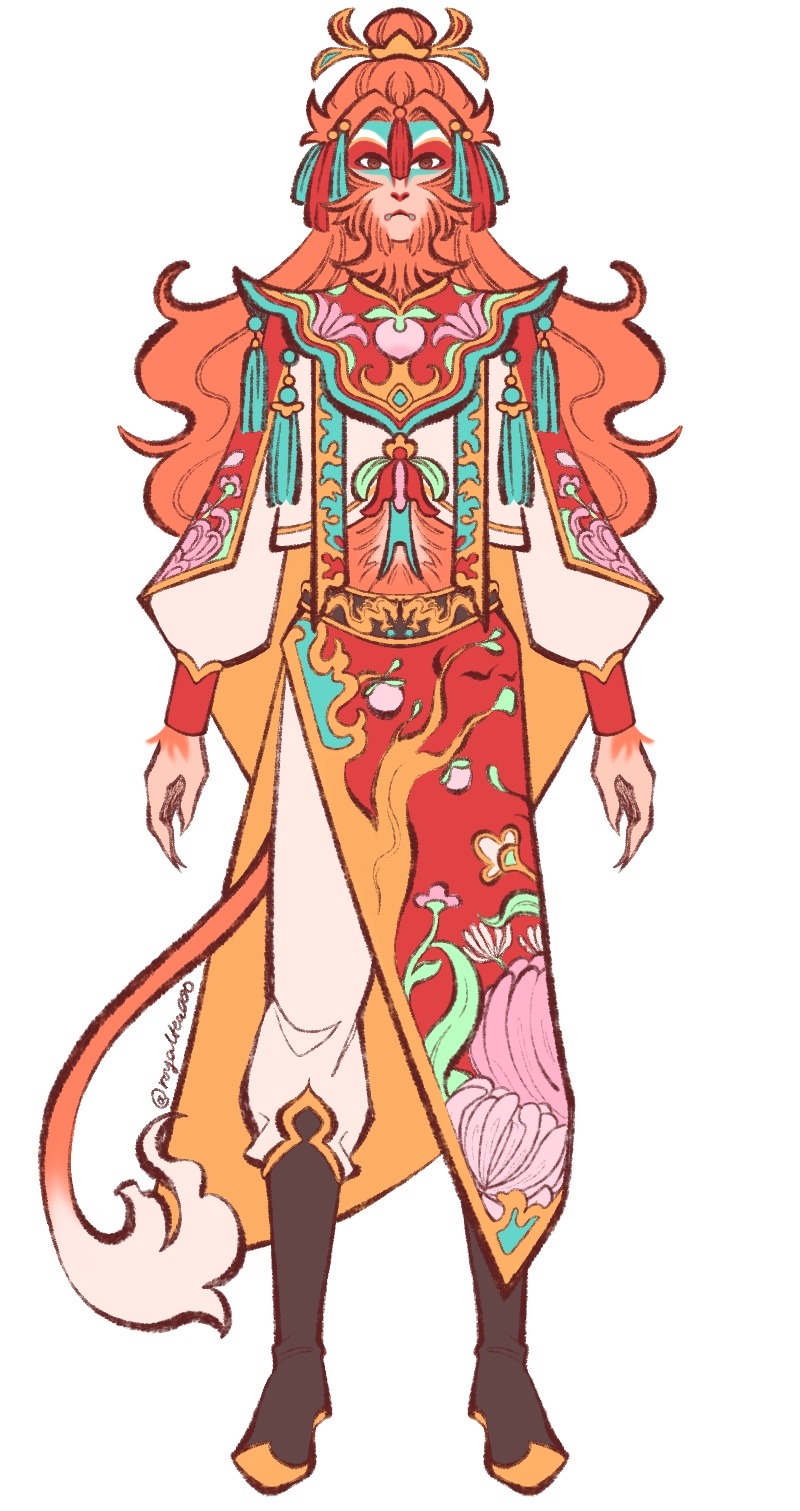
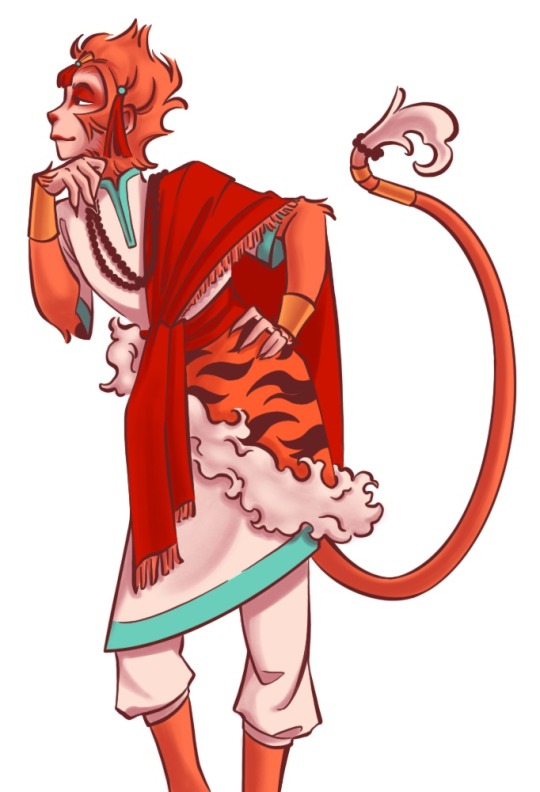
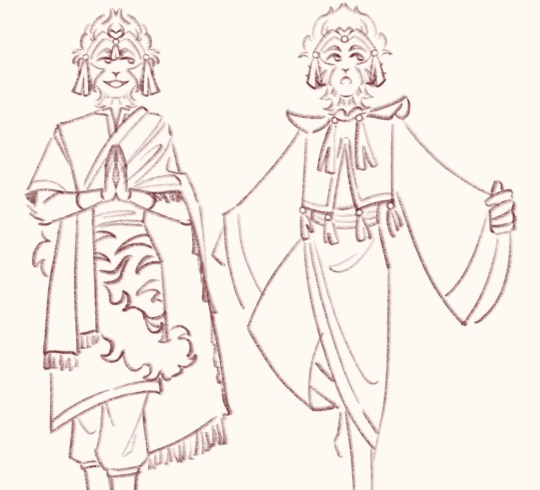
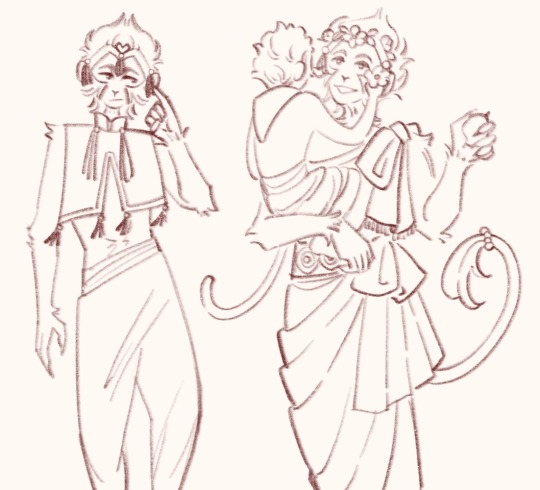
Qitian dasheng and other outfit concept sketches
#I always find it funny when in every iteration wukong is the only one to ever get outfit changes#he ran the fashion department pockets THROUGH#every season china’s Madonna gets a new dress cuz he’s the people’s prettiest little princess#jelly didn’t do a good enough job talking me out of that uglyass qtds design so you guys get to see it#I was going for a more empress dowager look to be unique but it doesn’t really suit him I think lol ^^#back to the drawing board#but I really do like that handsome monkey king sketch#the one with the small monkey in his arms#I like to think he’s actually very motherly to his children subjects <:3#that’s mother#I’m also trying my hand at giving him a more Indian outfit since that’s where they’re going -w-#not really satisfied with any of em lol#the crop top sketch is maybe him directly after getting out of the mountain and being petulant about the band#the tassels STAY ON#digital art#my art#jttw sun wukong#journey to the west#sun wukong#jttw fanart#monkey king#anyways lemme know what y’all think#I actually wanna hear other opinions on this :P#also if you couldn’t tell I’m obsessed with cloud collars at the moment#☁️ 🌺 🦢 ✨
281 notes
·
View notes
Text
Ghost Chirps AU Part 5
Part 1 & 2
Part 3
Part 4
***
While “Jason” (i.e. Alfred with an empty jet that Jason will meet up with later in order to “arrive” in Amity) hops a private jet, Red Hood is busy searching the Fenton home from top to bottom.
The local police move slowly, and by the time they arrive Jack and Maddie Fenton are both tied up and disarmed in their living room under heavy guard.
They hadn’t been restrained immediately, Batman talking him into giving them a chance to implicate themselves first.
Hood let him take the lead, but he didn’t even get a chance to ask a question, being cut off at the first indication he might want to talk about their “work.” Less than 60 seconds in, and the pair had outright confessed to violating the meta protection acts - and in tedious detail.
The questioning didn’t suffer any from them being tied up.
Far from the mulish silence or crocodile-tear laden denial of most criminals, they instead doubled down, insisting that nothing they had done was illegal, then jumping to the assumption that they were “possessed” - and boy had it been a nasty surprise when the whole house came alive trying to attack them with a quick verbal command.
Well, trying to attack Hood. And only him, for some reason.
One laser also freed the Fentons, who turned out to have even more weapons built into their suits.
Somehow.
Despite them being skintight.
That had been a pain, but Red Robin was able to hack the system using one of the couples’ own devices while Hood dodged - and kept the stray fire away from the others - leaving everyone else to recapture the pair. A blessedly simple task once they found out the lasers would splash harmlessly off of their armor (save for a gross film of green goop left wherever they grazed).
They take turns knocking each unconscious to change them in order to properly disarm them - Batman and Nightwing taking Jack first, followed by Orphan and Spoiler dealing with Maddie.
The only non-weapon laden clothing they own turns out to be pajamas.
This is around when the police show up, looking hesitant.
They, too, cite the “Anti-Ecto Acts.”
Oracle had debriefed them on the supposed Acts and “Ghost Investigation Ward” on their short drive over. Both were utterly bogus - the Acts had never even been proposed, let alone been approved as law, and the so-called “GIW” had no ties to the government.
The Fentons had been furious and denied the information intensely when told, but the cops mostly just looked relieved.
Apparently there’d been a lot of property damage by the GIW and Fentons both that had supposedly been dismissed under the Acts as “necessary in the pursuit of ecto-scum.”
For the Fentons, half of this damage was in the form of broken fire hydrants, cracked sidewalks, and totaled cars - they’d never been good drivers, before, the cops disclosed, but they’d become even more negligent since the ghosts began appearing, to the point they had to have a news segment warning when they would be on the road.
The lack of fatalities thus far had been nothing short of a miracle, they claimed.
“Of course there haven’t been any fatalities!” Mrs Fenton defends. “Our work is to protect people from those things, not make more! Officers, listen to reason-” Hood snorts disdainfully -”The Red Hood is clearly a ghost! All our systems targeted him the moment they came online - and they only target ecto-entities. He’s clearly taken these heroes under his sway - why else would they be working with a murderer!? You have to do something before he starts up his killing here in Amity!”
The officers look at him a bit hesitantly, but Batman is unmoved and gives the cover story Hood had outlined back in the alley.
Any concerns the locals have are quickly assuaged.
But for the whole explanation, Jason is trying not to shake even as he falls apart in place.
Their little website called them ghost-hunters, making it pretty clear what “ecto-entities” meant.
Their system supposedly only targets ecto-entities.
The system had only targeted him.
The system only targets ghosts.
Jason had died.
A lot of his family members had died, too, granted.
But Jason was the only one who seemed to come back wrong - anger sticking in his throat and never quite fading, an inclination towards violence even when he wasn’t angry well beyond what he’d ever felt before, and a sea of other emotions (that he would never acknowledge aloud) and triggers for those emotions that he always struggled to make heads or tails of.
He doesn’t have the meta gene. He knows that. He knew that.
He just assumed that the test missed it, because he knows he doesn’t know magic - the All Blades being the only exception - and he couldn’t think of another explanation at the time.
But he came back wrong.
And as he stands there, he wonders if he came back at all, mind on Solomon Grundy.
Wonders if he isn’t just some ghost, wandering around possessing his own corpse.
He jolts, as the thought strikes him: what about Danny?
If he’s a ghost and chirping is a ghost thing then what about his KID!?
Absently, he notes that Bruce has started interrogating the cops on what they meant by “ghost attacks.”
He ignores the discussion, hustling for the door in the kitchen down to the lab.
He slams and locks the door behind him - in Red Robin’s face - as he descends, making a b-line for the computer he’d seen when the Fentons had dragged them all down there to start bragging about their crimes.
The only thing Oracle could get out of the whole building was things that were openly available online; direct connections were impossible.
Opening up the screen, he gets to cracking.
Going for the surface level files first, it turns out he doesn’t even need so much as a password to find what he wants.
One of the video game sub-files has an unrelated file in it: ghost notes.
There are plenty of other notes, of course, but he’d only been skimming to start, looking for anything hidden.
The Fenton parents were too open to bother, of course, with plenty of more obvious files strewn haphazardly across the home screen, but it’s always better to check. That there is a hidden file means it was likely made by either Danny or Jazz.
And it’s a treasure trove.
Sub-files for rogues, allies, conditional allies, and “halfas” were what greeted him.
The last being the only term he didn’t recognize, he clicked.
6 files: Clones, Danny, Dani, Dan, Vlad, and Red Hood.
He clicks his own file.
What greets him is a picture of himself 4 days ago, looking just to the left of the lens in an alley that he distinctly remembers searching for the kid in.
Just below is text.
~~~
??? Name: Red Hood
Species: probably a halfa
Status: Nnnneutral? I think? I know, I know, heads in bags. But Valerie tries to kill me all the time! And we’re allies sometimes! Hood- uh- looked for me? Okay I guess I can’t really judge this yet but please read the first met section before you judge please you guys?
First met: Aug 17, 2005, was in Gotham to bother Batman, stopped to think a bit on some fire escape - decide on the first prank yknow - but then my ghost sense went off. It felt like a halfa so I thought “oh cool, must be Dani” so I chirped, but then Red Hood - who was chasing some guy down an alley at the time - froze and looked around. I dropped visibility and chirped again and yeah, he definitely heard it. Humans can’t so he’s definitely a halfa - no glow so he can’t be a full ghost and it felt nothing like an overshadowing.
Ended up following Hood around the rest of week - forgot to prank Batman, damn - and playing hide-and-seek with the chirps. It was really funny. But he very obviously doesn’t know he’s a halfa. But the guy is, like, scary levels of smart, so I’m sure he’ll figure it out on his own now that the chirp thing made it clear that something is up. Hopefully.
I figure I can go back in winter break - he should have it figured out and let his emotions process enough by then to at least hear me out when I explain the AEA and GIW and everything, then it won’t matter so much if he can, like, track me by voice or something if I talk since we’ll have MAD by then.
Despite his reputation, the people living in his haunt seem to love the guy. I can see why. On top of the whole smart he’s actually really nice to people he’s not shooting in the knees (which only even happened one time in the week I was there? It was actually pretty relaxing - most quiet week I’ve had since the portal opened THANK YOU TUCKER for hacking the portal hatch to be inoperable for a week).
Where was I? Oh yeah, he’s actually surprisingly nice to people? So like, I think he’ll probably hear me out if I go back and be polite? I hope. Hate to leave the guy in the dark and him end up on the GIWs dissection table for “lots and lots of painful experiments.”
Not that those guys could even catch the Box Ghost. But uh, Hood doesn’t seem to have powers either? Or if he does he doesn’t know about them I don’t think - he only used the chirp the whole time I was their - not even to cheat with moving around.
Seriously. That guy's acrobatics could make Freakshow’s contortionist green - er, red??? - with envy. Actually wait, aren’t contortionists and acrobats different things?
SAM NOTE: help^?
Powers:
?
~~~
Jason leans back, breathing deeply.
“Not a full ghost,” “not 'overshadowed'” - a term that sounds likke some kind of cousin to possesision - “definitely a halfa,” “humans can’t hear chirps.”
Halfa.
Half.
Ghost.
Half Ghost.
It should sound absurd - you can’t be half alive and half dead.
But Jason has seen the Lazarus pits, has met Solomon Grundy, has met aliens and bullshit magic and can pull magical swords out of his own damn chest.
Half alive. Half dead.
Hopefully not just a fancy way to say possessing his own corpse.
He doesn’t have time to deal with every file - he’ll “confiscate” one of their USBs with a copy of everything for himself before leaving the rest to Batman & co, of course, minus the halfa files (a small part of him wants to shove his condition in Bruce’s face and demand he kill the clown again even though he knows it’s a futile hope, but the rest - the same part that snapped and denied and refused to say he was a meta less that a day ago now - cannot stomach the thought of even more rejection. Of a Bruce that believes he’s a monster. Of a Bruce that mourns him even while he’s right there. Or at least, more than he already does.) - but while the files copy he take the time to look at Danny’s.
The image has two people, Danny Fenton on one side and a version of the kid in a black hazmat suit with white hair, tanned skin, and painfully familiar green eyes. And floating.
~~~
Human Name: Danny Fenton
Ghost Name: Danny Phantom
Species: Halfa (half-human, half ghost)
~~~
It’s the section after that that makes Jason’s breath catch in his throat.
~~~
Death: The Portal Accident
So like, there was no audio (thank GOD I do not want to hear myself screaming) so. Details: When the portal didn’t work when they plugged it in mom and dad left for fudge, Jazz went to try and talk them into a more realistic career choice than ghosts. Sam and Tucker came over and Sam dared me to climb in and check it out - it was broken anyway so no harm. Except it wasn’t broken, just that my parents put the on button inside. Which I caught myself on when I tripped on a wire.
Anyway, electrocution!
(T - Danny for the love of god be more serious, the cheerful tone is creepy)
(D - Hey! I’m the one who died! Shouldn’t I at least get to write my own epitaph)
(S - …Danny this is not an epitaph. You don’t even HAVE a grave)
(D - wow way to rub it in Sam)
(T - yeah Sam)
(S - ugh! Whatever, just stop with the chatting in official files)
(T - “official”)
(S - Tucker.)
(T - shutting up now)
Electrocution! I got zapped to death, but the ectoplasm from the portal was also opening up on top of me and a lot got bonded to me I guess (S - probably because of the electricity with how you ended up with some of Vortex' powers for a little while) at the same time said electricity was reviving me? - probably getting my heart beating again or something, I was a little busy screaming to pay attention (T - yeah okay we're going to Nasty Burger after this. And playing Doomed) - not that it would’ve mattered without the ghostification preventing me from melting me all the way to death.
Status: Me!
Powers:
Chirps! (ghost echolocation of some kind! humans can't hear em - halfas can, of course, in either form)
Form Change (really Sam? This barely counts)
Human form
Ghost form (no need to breathe)
Flight (last clock speed 210mph) (T - and climbing. Dang dude)
Invisibility (S - don’t forget shareable.) (Shareable. sigh)
Intangibility (Shareable)
Ecto Rays (eyes & hands) (T - and butt) (D - dude! I’m deleting that. Tucker why can't I delete it. TUCKER) (T - bow down in awe of my ksill) (S - ksill) (D - ksill) (T - yeah okay it’s permanent now) (D - aw man!)
Ghost Sense (S - why do we never test your range?) (D - no need? They always make themselves obvious or are being sneaky specifically to annoy me so *shrug*) (S - I still think we should test it)
Power Absorption (that time with Vortex’s weather powers)
Cryokinesis (Wayyyyy to much ice. NOT testing max output on that) (T - yeah frozen city was enough, let’s not cause an ice age. Tech needs some cool but too much is still bad and I just upgraded Patricia)
Ghostly Wail (cone of destruction, very exhausting - always at max output. Not to be used)
GHOST FORM ONLY (but really just never)
Cartoon Body (D - what???) (S - Freakshow literally turned you into a puddle and you just turned back and were fine. I don’t know what else to call that) (D - okay fair. but:)
GHOST FORM ONLY
Physical Enhancement (better strength, speed, stamina, durability, reflexes, balance, etc much better than human) (T - why does this look like dnd knockoff stats haha)
GHOST FORM ONLY (S - obviously mr last place in PE)
Resistances (pretty solid on the overshadowing, avoided being taken in by Ember until targeted, didn’t get turned to stone during the Medusa thing) (S - which was pure luck! Be careful!)
Ecto Electricity (ghost stinger, but I really don’t think this counts Sam. I mean I just. Make my ecto zappy. But it’s still just ecto) (S - so is your ICE and you don’t just call that "just cold ecto") (D - fine, but it feels overly specific) (S - maybe writing it all down will make you stop. Forgetting. POWERS!) (D - come on Sam that was a lucky hit! I was distracted! And it turned out fine!) (S - Fenton…) (D - oop okay doing fire now)
Ecto Fire (made Dash’s shoes melty that one time by make the ecto hot) (T - really needs more testing)
Tech possession (chasing Technus into computers, not very tested)
Ghost form only, i guess?
Overshadowing (control people, copy their voice, invade dreams - the control one erases the person’s memory so they don’t know they were overshadowed just lost time. I hate Walker. SO much) (T - rip Danny’s reputation, you’ll be missed)
Probably ghost form only
Duplication (T - That’s optimistic) (D - I’M WORKING ON IT OKAY!?) (S - pretty sure it just falls under cartoon body until you can actually separate) (D - :( betrayal)
Probably ghost form only
More? (D - ugh I hope not) (T - hey don’t say that, maybe you’ll get a power to make the JL give a crap about Amity) (D - honestly I’m getting pretty close to letting Boxy loose in Gotham) (S - Danny, don’t stoop to their level!) (D - it's only box ghost!) (T - I mean he has a point)
~~~
Jason changes his mind, seeing the commentary, and deletes the entire hidden file from the computer as soon as his copy is made. He can go over everything and bring any important info to Bruce separately, the bat’s can just chew on the parents’ files for now.
Once the original files are thoroughly and irretrievably removed he pockets his shiny new USB, makes a second one with all the official files, and heads back up and out - carelessly brushing past a thoroughly irate Red Robin with a pair of firemen and broken jaws of life. And not a scratch on the door; impressive - just in time to get Oracle’s text that he’s got 2 hours and 16 minutes to be at the location on his HUD so he can “arrive” to Amity.
And a fresh set of civilian clothes will be waiting in the plane, Alfred as reliable as ever.
“Files,” he says, tossing the safe USB to Batman and interrupting his interrogation of the police officer.
He catches it effortlessly of course, but the officer stops paying attention to him to jolt at Hood’s reappearance - even outside of Gotham his reputation is fierce.
“I sent a copy to myself. I’ll review them and give you an overview, but other than that consider this the end of my involvement in this little shitshow,” he says, continuing smoothly to the door. “I’m heading back to Gotham.”
Now, he has a little over two hours before Jason Todd needs to arrive in Amity Park. He only needs to lay hands on a laptop that he can isolate from Babs’ influence and he should be able to review the Halfa files in full before he "lands" - after he figures out just why the kid has a grudge against the JL.
#The defenses only attacked jason because the others are liminal#But not quite liminal enough for the Fenton House to pick up on#He’s the only one who died and had it really *stick* thus why he’s the only halfa#Sure the others died but they were all revived fully#Death left a stain#Not a chain#Jason has one foot in the grave#The others bat’s just have some graveyard dirt smudged on their pants cuffs#I can keep going with the metaphors#lol#Anyway#Their contamination is. Like. not worse than the average person living on the opposite side of the city as the Fentons#(which is a lot compared to everyone else in the whole world#but not much in terms of “will the house shoot me”#Fenton ghost detecting devices aren’t that precise yet)#The “files” aren’t super professional because like. They’re 14.#It’s organized sure but it’s not gonna be scientific paper levels (& they’d feel uncomfy making it too scientific sounding)#There’s powers missing on purpose (not thinking of thing as a power. All 3 forgot about it. Etc)#So why did the JL ignore Amity you ask?#Info blackout#One does not simply ignore the Meta Protection Acts and pretend to be a gov’t agency without taking precautions#Everything out of Amity Park is sanitized as hell. (ha#and doesn’t that just fit the GIW clean-obsession)#“But Mutable!” I hear you cry “What about Undergrowth & Vortex!”#I don’t remember Undergrowth’s radius of effect but I’m saying my AU he was Amity-only and the GIW set up a blockade to intimidate witnesse#Same deal with Pariah town-knapping the place (GIW base was JUST out of the town-knapping radius. Lucky them)#As for Vortex#the storms themselves made it impossible to track anything through normal means#(ie no cams caught Sam & Tucker’s jet taunting Vortex except some people with cells on the street. But wind killed all the audio)#So as far as the world is concerned there was a freak storm and it went away
237 notes
·
View notes